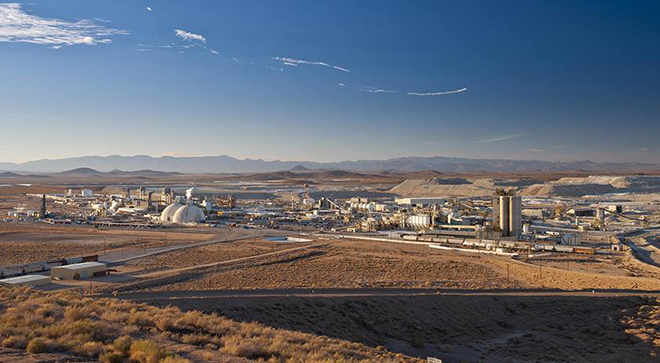Rio Tinto has commenced production of battery-grade lithium from waste rock at a lithium demonstration plant at the Boron mine site in California. The demonstration plant is the next step in scaling up a lithium production process developed at Boron, to recover the mineral and extract additional value out of waste piles from over 90 years of mining at the operation.
An initial small-scale trial in 2019 successfully proved the process of roasting and leaching waste rock to recover high grades of lithium.
The demonstration plant has an annual capacity of 10 tons of battery-grade lithium. It will be run throughout 2021 to optimize the process and inform Rio Tinto’s feasibility assessment for progressing to a production-scale plant with an initial capacity of at least 5,000 tons per year—enough to make batteries for approximately 70,000 EVs.
CEO Sinead Kaufman said, “This is a valuable next step in scaling up our production of lithium at the Boron site, all from using waste material without the need for further mining.”
Rio Tinto’s lithium pipeline includes the Jadar lithium-borate project in Serbia, for which a feasibility study is expected to complete by the end of 2021.
Source: Rio Tinto



















































